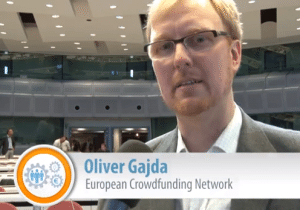Online capital formation has emerged as an effective path for private companies to raise much-needed growth capital fueling innovation and creating jobs. Once the realm of VCs and angel investors only, investment crowdfunding now enables retail investors to access promising young firms at an early stage. Just like more traditional venture funding, many of these companies never generate outsized returns but some do driving wealth for investors.
But while this sector of Fintech is maturing, most platforms have not turned the corner on profitability or perhaps a better term – sustainability. For investment crowdfunding to work in the long run, all three constituent parties must achieve their goals: issuers must raise the capital they need, investors must generate (in aggregate) positive returns and platforms must become profitable. This past year saw progress on all three fronts as platforms iterated, acquired and regulations were improved.
So what were the biggest stories in crowdfunding for 2020? Below is a selection of some of the top stories globally. If you think we have missed an important story – shoot us an email at info@crowdfundinsider.com and let us know. We would love to hear from you.
The SEC Improves the Exempt Offering Ecosystem. Increases Reg CF Funding Cap to $5 Million.
In March, the Securities and Exchange Commission proposed material improvements to the exempt offering ecosystem following an extended consultation on existing rules. In November, the Commission approved new rules that increase Reg CF funding to $5 million, from current $1.07 million, and Reg A+, Tier II offerings to $75 million, from current $50 million. Additionally, Rule 504 of Reg D saw its maximum funding cap raised to $10 million from $5 million.
Additional adjustments were added including allowing accredited investors to commit as much money as they wanted to Reg CF offerings. Special Purpose Vehicles for Reg CF were included as well. Ryan Feit, CEO and founder of SeedInvest, said the changes represent a major turning point for private capital markets in America.
 At that time, Commissioner Hester Peirce stated:
At that time, Commissioner Hester Peirce stated:
“We have to do a better job of getting capital to businesses. I view today’s work on harmonizing, simplifying, and improving the exemptive framework to be a positive step, but we have more work to do to ensure that small- and medium-sized businesses all across the country can raise capital in a way that works for them, supports economic growth, and is consistent with investor protection.”
These changes, along with an update to “Finders” and a minor loosening on how an accredited investor is defined, represent the most dramatic updates to private securities offerings since the JOBS Act was signed into law. While not 100% perfect, these changes have been well received by platform operators that understand the securities crowdfunding market better than anyone.
As far we know, none of the primary issuance platforms are profitable today (and there are about 60 FINRA regulated funding portals as well as some broker-dealers that are active). These changes should help bring crowdfunding to a point of sustainability as they will be able to raise larger amounts for issuers and thus generate more revenue while listing more established firms for investors.
The European Union Announces Harmonized Crowdfunding Rules
The European Union also approved an update to securities crowdfunding. Aligning with the European Capital Markets Union (CMU) policy, public officials finally approved pan-European harmonized crowdfunding rules. Importantly, issuers will be able to raise up to €5 million across all the member states. This change would not have taken place without the dedication and tenacity of the European Crowdfunding Network – an association that represents platforms across the EU. Formed in 2012, the ECN has been working towards this goal for the past 8 years.
 ECN founder and Executive Director Oliver Gajda told Crowdfund Insider earlier this year:
ECN founder and Executive Director Oliver Gajda told Crowdfund Insider earlier this year:
“So this has been an 8-year journey in which many highly skilled and motivated people from our membership have joined open discussions and provided input to policymakers here in Brussels. We are very proud to have been able to work with all of them.”
Currently, each European country is guided by national rules creating a fragmented market that can be difficult to navigate. While national regulators will still be engaged in the process, an issuer will have the option to raise capital from other member states via a single regulator regime. The rules are expected to become actionable later in 2021.
Next on the agenda is crypto…
Republic Goes Supersized: Acquires FIG, Compound, and NextSeed Small Business Funding. Adds Litigation Offerings too.
Republic, an offshoot of AngelList, was not the first platform to the world of crowdfunding but it has certainly emerged as the most acquisitive platform that has sought to build multiple verticals targeting different sectors of online capital formation. Republic started as an early-stage platform striving to connect capital with underserved markets like minorities, female entrepreneurs, and flyover country. Today, Republic has a game crowdfunding platform, a real estate investment marketplace, a debt specialist tech stack, and crypto offerings. Additionally, Republic recently partnered on a litigation funding site – details are still emerging.
First, Republic acquired FIG – a unique securities issuance site that leverages Reg A+ to fund video games and then allow investors to benefit from the income streams the game generates.
Compound is another acquisition that is specifically for real estate crowdfunding.
Announced in November, Republic acquired the assets of NextSeed small business investment platform for undisclosed terms.
 And just this month, Republic announced a venture with Avalanche and Roche Cyrulnik Freedman, to pursue “Initial Litigation Offerings” or “ILOs” – effectively digital assets tied to lawsuit where investors may benefit from the outcome of any settlement. Data from litigation fund LexShares indicates that median annualized returns for its fund are around 52%. Does that have your attention? As well, the ILO tokens will be tradable on Ryval described as the stock market of litigation financing.
And just this month, Republic announced a venture with Avalanche and Roche Cyrulnik Freedman, to pursue “Initial Litigation Offerings” or “ILOs” – effectively digital assets tied to lawsuit where investors may benefit from the outcome of any settlement. Data from litigation fund LexShares indicates that median annualized returns for its fund are around 52%. Does that have your attention? As well, the ILO tokens will be tradable on Ryval described as the stock market of litigation financing.
In early 2020, Kendrick Nguyen, CEO and founder of Republic, told CI he is more excited about the potential of private investing for the crowd than 4 years ago.
So what is next for Republic? Global domination. Expect an expansion into Europe or Asia or both in 2021.
Crowdcube and Seedrs Merge
Seedrs and Crowdcube have long been loyal competitors in the UK crowdfunding market. Between the two platforms, they Hoover up over 90% of early-stage crowdfunded securities offerings in the UK. When the two platforms announced a merger in October, I was shocked.
If approved by the regulators, Seedrs/Crowdcube will combine efforts and be able to eliminate duplicated operational processes while focusing on expanding into other markets, offering more services to issuers and investors. Both platforms bring valuable features to the table. Uniquely, Seedrs operates the best secondary market that enables trading in crowdfunded securities.
 At the time of the merger announcement, Darren Westlake, co-founder and CEO of Crowdcube stated:
At the time of the merger announcement, Darren Westlake, co-founder and CEO of Crowdcube stated:
“Today’s agreement is an incredibly exciting milestone that will benefit high growth businesses, their investors who believe in their vision and the wider entrepreneurial ecosystem that supports them. Together with Seedrs, we can accelerate plans to further expand in the UK and overseas, launch innovative new products and improve our customers’ experience.”
Seedrs CEO Jeff Kelisky added:
“We are both Fintech pioneers that have challenged the landscape of capital raising in Europe, building marketplaces for private equity investment. We believe that you need to be a player of greater scale to serve companies and the investors who support them.”
As was mentioned above, the European Union has approved harmonized crowdfunding rules across all of the member states. Both platforms already have European operations. United as one, they should do even better serving European issuers and investors.
In the long run, the combined entity envisions itself as the largest private investment platform in the world serving global issuers and investors.
Fundnel Partners with PhillipCapital, Prime Partners on Private Securities Exchange
Launched in 2015, Fundnel is Southeast Asia’s largest private investment platform. Operating in multiple Asian countries, Fundnel reports over USD $362.4 million in capital raised. The firm inched into the US market earlier this year with a partnership with Wavemaker Labs.
Always very tech-focused, Fundnel, along with PhillipCapital and Prime Partners, announced a private securities exchange Hg Exchange (HGX) in 2020. HG Exchange is said to bring a “collective strength of 500,000 investors and brokers.”
 Part of the Singapore Fintech Sandbox program, HGX holds a Capital Markets Services (CMS) license for providing custodial services regulated by the Monetary Authority of Singapore. HGX is managed by a former securities regulator.
Part of the Singapore Fintech Sandbox program, HGX holds a Capital Markets Services (CMS) license for providing custodial services regulated by the Monetary Authority of Singapore. HGX is managed by a former securities regulator.
Powered by speedy blockchain Zilliqa, HG Exchange can support both digital and traditional securities and is thus well-positioned for the inevitable transition to all digital assets. As a capital-raising platform, Fundnel has effectively built out its primary issuance and now secondary trading abilities and is ready to scale further.


